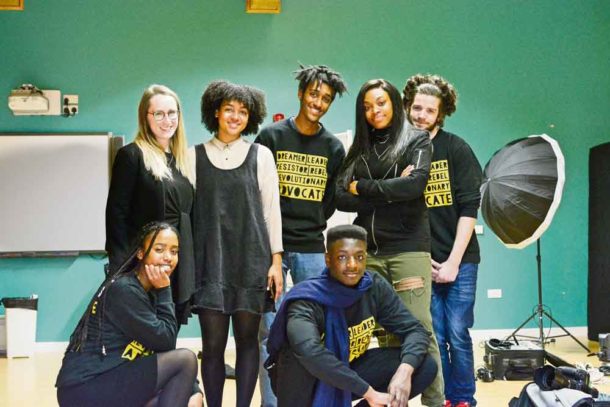Tevye Markson talks to Legally Black’s Shiden Tekle, 18, Kofi Asante, 17, and Belmiro Matos da Costa, 18 (minus fourth member Liv Francis-Cornibert, 18) about Black media representation, their now famous posters and what’s next

Political posters on Brixton’s bus stop billboards sent four young south London activists viral last month.
Inspired by “brandalism” the young activists recreated famous film and TV posters with Black actors, recruiting friends and family for the photoshoot.
They met at Advocacy Academy, the eight-month social justice fellowship for 16-18-year-olds in South London founded by Brixton resident Amelia Viney.




